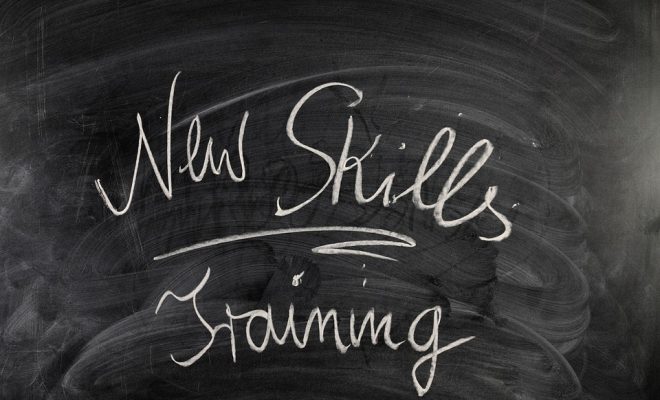STEAM Learning in Motion

By Tricia Hussung
Everyone knows that many students in the US are not prepared for careers in science, technology, engineering, and math (also known as STEM). Students in the US routinely score low on math and science tests, lagging behind other industrialized nations. This is perplexing, especially given the fact that STEM careers are financially lucrative—college students who graduate with STEM degrees earn quite a bit more than their peers with degrees in other disciplines. Also, the market for people with STEM degrees is huge and continues to grow. The U.S. Chamber of Commerce Foundation estimates that there will be over 3 million job openings in STEM-related fields by the year 2018.
To give American students a competitive edge, education researchers have conducted many studies on strategies that motivate students to pursue and excel in STEM careers. They found that integrating the Arts into the STEM subjects made both disciplines resonate with students more. As a result, educators have merged STEM Education with Arts Education to create what is known as STEAM (science, technology, engineering, arts, and mathematics). This method teaches K-12 students to think critically and creatively by using the tools that they have learned in the arts.
What is STEAM?
STEAM merges traditional STEM subjects with the arts. It uses the arts as a vehicle for guiding student collaboration, critical thinking, and scientific inquiry. As a result, students become intentional about their actions, excited about the scientific process, and passionate creators. STEAM operates by combining the benefits of STEM with the openness of the arts. At the end of the day, students reap the benefits of STEAM learning and secure their futures along the way.
Voices from the field: Teachers’ views on the relevance of arts integration, a study that was done by Lesley University in 2012, concluded that teachers are on board with STEAM learning in schools. This study used data from 204 teachers in 19 states. According to its findings: “teachers report that arts integration stimulates deep learning, creates increased student engagement, and cultivates students’ investment in learning.” The study also found that a comprehensive approach to education allowed teachers to differentiate instruction, and as a result, meet the needs of students from diverse populations. The findings are significant, as they spotlight the thoughts and ideas of teachers who use STEAM pedagogical methods daily and who have witnessed their effects.
STEAM’s Influence in the Classroom
The emergence of STEAM has resulted in new pedagogical methods. These methods are a combination of disciplines that have been traditionally siloed from each other, according to Maureen Creegan-Quinquis, an associate professor, and director of Creative Arts in Learning at Lesley University’s Graduate School of Education. The Washington Post has also weighed in, stating that STEAM promotes “skills seen as important in academic and life success.” Below you will find a list of the skills that The Washington Post says students gain from STEAM instruction.
- Collaboration: For STEAM classrooms to be successful, they have to feature a high level of collaboration. Students learn to depend on each other and share responsibility by collaborating on various projects that include material from several disciplines.
- Problem Solving: Being taught new skills prepares students to go into difficult situations with a positive, self-confident attitude. Through utilizing STEAM, educators can assist students in using creativity to solve problems.
- Confidence: Classroom instruction led by the arts can give students one on one training in speaking in public with confidence. When coupled with the STEM subjects, students learn to tackle challenges with poise.
- Creativity: When students learn how to think creatively, they tend to approach life differently. They can be taught to be creative by being required to use a variety of cognitive functions and skills throughout the school day.
Creegan-Quinquis is not astonished the efficacy of STEAM: “Science, technology, engineering, mathematics, and the arts all have very similar intellectual ancestors: some of the same philosophical underpinnings, some of the same inquiry questions. There’s always been connection between the arts and these other domains … the difference is that now you will see deliberate as opposed to accidental cross-pollination between the subjects and a lot of it is about making learning accessible.” She further highlights that STEAM’s most salient advantage is that it possesses several points at which it can be accessed. This allows students with various learning styles and experiences to learn in a manner that is best for them.
Applying STEAM Philosophies for Success
Creegan-Quinquis gives a few examples of how educators can incorporate the STEAM disciplines into their classrooms. Her first example involves the use of digital tools. “Classroom teachers use a lot of interactive books online, the kind that are very artistic and creative, and actually have animations and movement … with the focus on being able to use it to teach new vocabulary [for example].”
Providing students with several ways to present what they have learned in the classroom is another benefit of STEAM. “You may have a student who is quiet … and they are not always the first one jumping up and raising their hand. If you know that student likes rap and you ask her to make a rap song about a mathematic equation, watch what happens when she starts rapping. You often will be inspired and excited by how much she knows,” Creegan-Quinquis says.
Using an interdisciplinary approach to teaching is a good way to incorporate STEAM into your classroom. Creegan-Quinquis gives the example of Shakespeare’s Macbeth: “Ask them to do a little creative writing, then act out part of the play based on their own [re]writing of the script. You may have them playing William Shakespeare being interviewed about why he wrote the characters that he did. You may have students create collages of the characters. Approaches like these can all enhance their understanding of the book they read.”
She recommends utilizing edtech to instruct students in subjects such as social studies and science. “I might use technology to have students research three different multimedia experiences of an important event in history,” she. “In science, the students will use lots of graphics to give visible form to their experiment. They will create their own documentary. They will use animation apps [and] iMovie.” These methods allow educators to incorporate STEAM into their classrooms seamlessly.
Innovation and the 21st-Century Classroom
The push for STEAM education is a significant development in K-12, mainly because of the speed at which change occurs and the unpredictable nature of the labor market.“Education is under pressure to respond to a changing world. As repetitive tasks are eroded by technology and outsourcing, the ability to solve novel problems has become increasingly vital,” says Jeevan Vasagar, a writer at the Financial Times. If this is true, for the US to continue to thrive economically, we have to place STEAM at the center of our K-12 education system. Educators who can integrate STEAM into their classroom instruction will be well positioned to prepare students for the problems and issues of tomorrow.
The online Master of Education programs offered by Lesley University can give educators the skills and knowledge base that they need to instruct students in today’s classrooms. With its online master’s degree in mathematics education and online master’s in science education, Lesley provides educators with a chance to increase their knowledge of contemporary pedagogical approaches and sharpen their instructional and assessment techniques. You can find out more about these completely online programs here.






